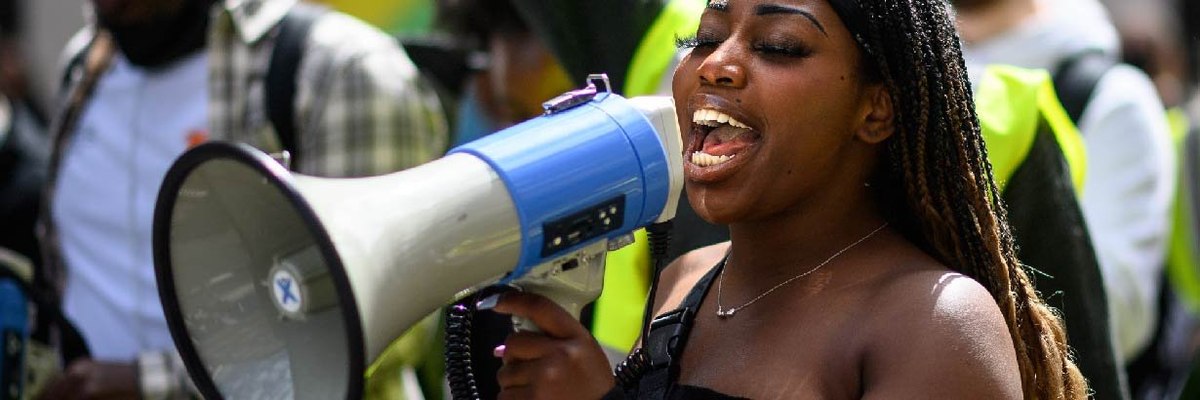Britons have mixed opinions about the impact of the UK protests following George Floyd’s death
The murder of George Floyd triggered mass protests on both sides of the Atlantic this spring, bringing the Black Lives Matter (BLM) movement to new prominence. YouGov research shows that while some view the movement as controversial, it did create awareness and spark conversations about racism.
For one, nearly all Britons (87%) regardless of ethnicity know who George Floyd was and why his name appeared in the news. Another 5% are familiar with his name but are unsure why, while only 8% of the public have not heard of him at all.
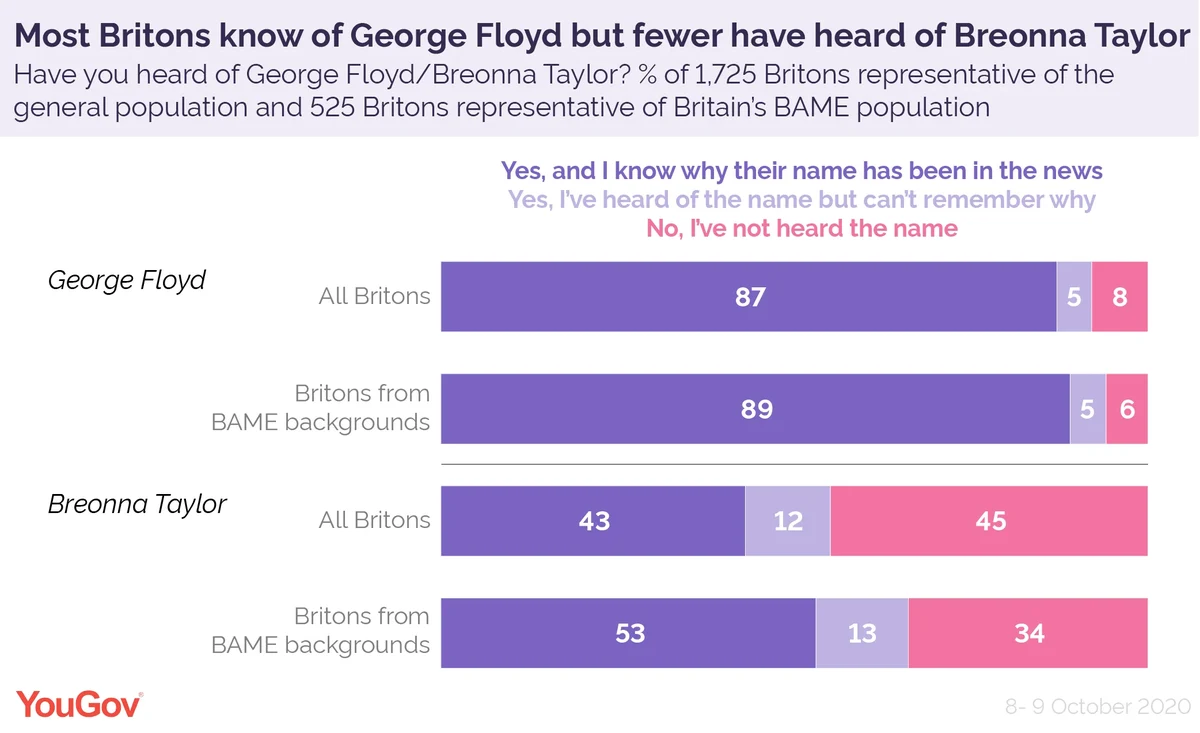
People are less familiar with Breonna Taylor, an African-American woman who was shot and killed in her sleep during a police raid on her home in May. Despite the fact that Taylor’s death became key to the protests, only about two in five Britons have heard of her and know why (43%), while another 12% recognise her name but are unsure of the reason. Some 45% of Britons don’t know who she is.
People from Black, Asian and Minority Ethnic (BAME) communities are more likely to know of Breonna Taylor and why she was in the news (53%) than Britons in general. Nevertheless, one in three (34%) still haven’t heard of her.
Some Britons are discussing racism more – but mainly with people of the same race
While most Britons with family (59%) say there’s not been any change in how often they discuss racism with relatives, about a third (34%) say they’ve broached the subject more often recently.
When it comes to friends and colleagues, the data suggests people are more comfortable with discussing the issue with someone of the same race. While nearly three in ten Britons with friends from the same ethnic background (28%) have talked with them about racism more often, this is only true for just under a fifth (18%) of those with friends of a different race.
The same pattern appears among workers. About a fifth of employees with colleagues of the same race (21%) have spoken with them about racism to a greater extent, compared with 16% of those with colleagues of a different race.
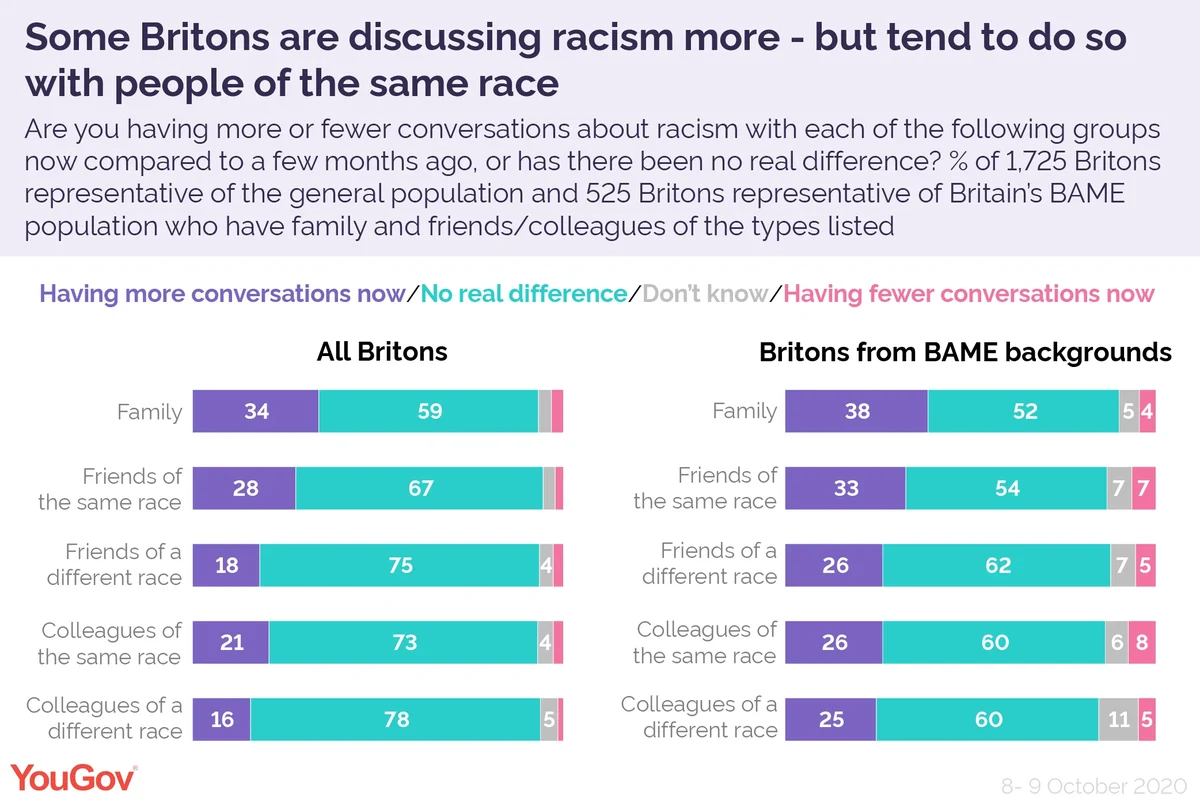
Britons from BAME communities are more likely to say they’ve talked about racism to a greater extent with every type of relationship. Nearly two in five (38%) are increasingly chatting about it with their family. Compared with the wider population, a higher proportion are also discussing racism more with friends and colleagues with different ethnicities at respectively 26% and 25%.
Among all Britons, younger people are much more likely to say they’ve addressed the topic more frequently. Three in five 18-24-year-olds with family (60%) have talked about racism with relatives to a greater degree, compared with a fifth of those aged 65 and over (20%).
But even among young people there’s a big gap in how many are discussing racism more with friends of the same ethnicity (58%), compared with those with friends of a different race (43%).
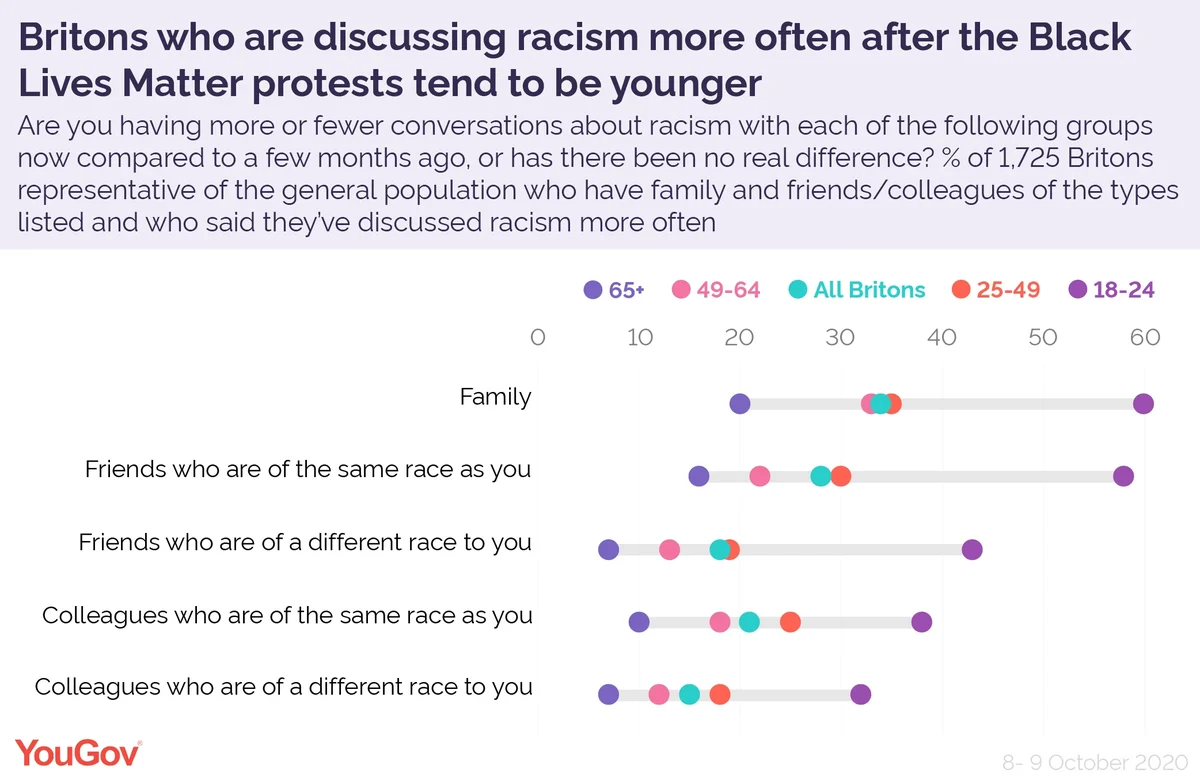
Many people agree with the BLM movement but are sceptical of the protests
Close to half of Britons (47%) have a favourable view of the Black Lives Matter movement, while a slightly smaller proportion view it unfavourably (41%).
But only a third of people (32%) believe the protests earlier this year affected Britain positively, while two in five (40%) believe the impact was negative. About one in six (17%) say it was neither positive nor negative.
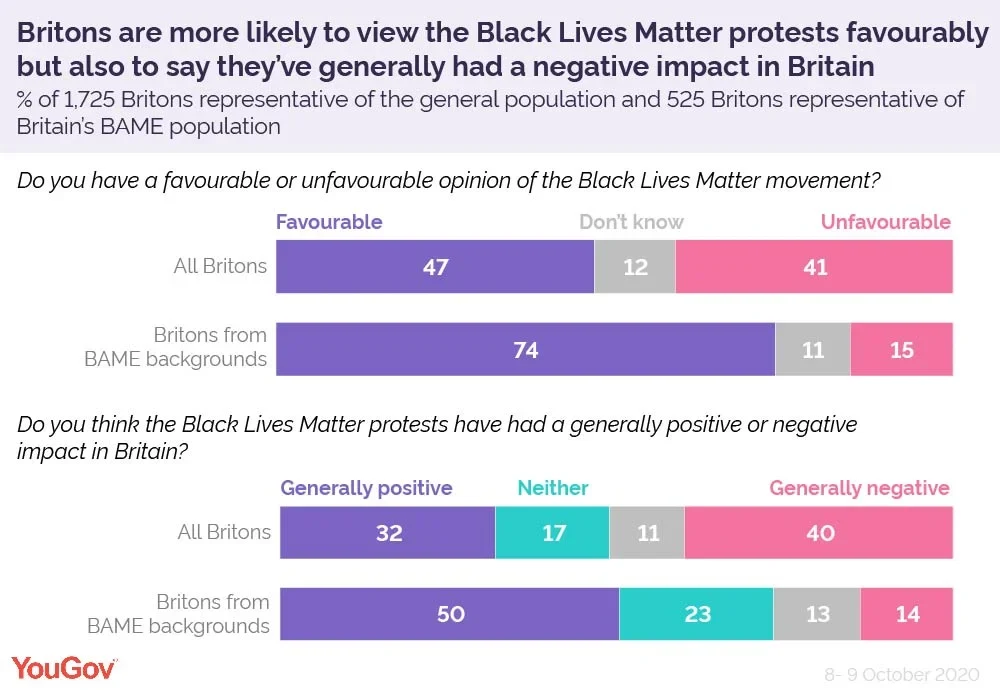
People from BAME communities are generally much more supportive of Black Lives Matter than the wider population. Nearly three quarters (73%) have a favourable view of the movement, while only one in seven say the opposite (14%). Similarly, half say the protests had a positive impact, while only 14% say it was negative. Just under a quarter are think the impact has been neither positive nor negative (23%).
